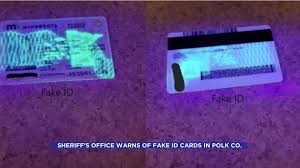How do fake IDs get caught
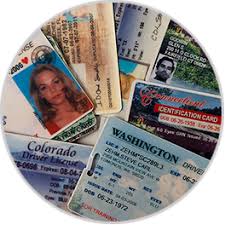
How Do Fake IDs Get Caught?
Introduction
The use of fake IDs has become increasingly common, especially among teenagers and young adults trying to bypass age restrictions for activities such as purchasing alcohol or entering clubs. However, the methods used to catch fake IDs are becoming more sophisticated. In this article, we’ll explore the processes behind how fake IDs get detected, the technology involved, and how law enforcement and businesses are cracking down on this illegal practice.
What is a Fake ID?
A fake ID is any form of identification that is either forged, altered, or used by someone other than its rightful owner. Whether it's a counterfeit driver’s license, a modified passport, or someone using their older sibling's ID, these fake documents are illegal and can have serious consequences.
How Fake IDs Are Detected
There are several methods that law enforcement, businesses, and security personnel use to catch fake IDs:
1. Manual Inspection
The first line of defense against fake IDs is the person inspecting it. Bouncers, bartenders, and cashiers are trained to spot irregularities in IDs. They look for signs such as:
- Holograms or watermarks that look suspicious
- Incorrect fonts or misaligned text
- Unusual colors or textures on the ID card
- Expiration dates or birth dates that don't match the individual's appearance
While manual inspection isn’t foolproof, it's often effective at spotting poorly made fake IDs.
2. ID Scanning Technology
ID scanners have become a vital tool in detecting fake IDs. These scanners not only check the barcode on the ID for authenticity, but they also cross-reference the information with a database to ensure the person is of legal age. Some advanced systems can even detect if the barcode on a fake ID has been tampered with or altered.
Scanners are commonly used in:
- Nightclubs
- Liquor stores
- Airports
These devices are incredibly effective at catching fake IDs that would otherwise pass a manual inspection.
3. UV and Hologram Verification
Another method that helps detect fake IDs is the use of ultraviolet (UV) light and hologram checks. Real government-issued IDs usually have holographic images or features that only appear under UV light. High-quality fake IDs sometimes try to replicate these features, but they rarely match the precision of legitimate IDs.
4. Law Enforcement Databases
Law enforcement agencies often have access to sophisticated databases and verification tools. If a fake ID is confiscated, it can be run through these systems to determine its legitimacy. Fake ID detection has become more efficient through shared information networks, enabling local law enforcement to communicate across states and regions.
Consequences of Using a Fake ID
Getting caught with a fake ID can lead to serious consequences. The severity of punishment depends on local laws and the type of fake ID used. Possible consequences include:
- Fines
- Community service
- Misdemeanor or felony charges
- License suspension
In addition, using a fake ID to purchase alcohol or tobacco may lead to other legal issues, such as contributing to underage drinking or fraud charges.
Trends in Fake ID Usage
With the advent of the internet, it's easier than ever to purchase a fake ID online. However, these fake ID websites are often scams, and even when a high-quality fake ID is made, the risks of getting caught are still high. Businesses are investing in ID detection technology, and governments are continuously updating their methods for spotting fake documents.
How to Prevent Fake IDs from Being Used
For businesses, it's essential to implement strict policies for ID checking. Training staff to recognize the differences between real and fake IDs can help prevent underage sales. Additionally, investing in ID scanners and regularly updating their software ensures that fake ID detection methods stay current.
Conclusion
In conclusion, fake IDs get caught through a combination of manual inspection, advanced technology, and law enforcement efforts. As fake IDs become more sophisticated, so do the methods used to detect them. Whether you're a business owner or simply curious about how fake IDs are caught, understanding these techniques is crucial. Remember, using a fake ID is illegal and can result in significant penalties if caught.
Related Keywords and Phrases:
- Fake ID detection methods
- Consequences of fake IDs
- ID scanning technology
- Fake ID risks
- UV light ID verification
- How do bouncers spot fake IDs?
- Penalties for using fake IDs
- High-quality fake IDs
- Fake ID confiscation process
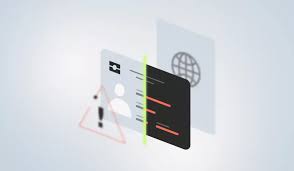 Custom ID services
Custom ID services
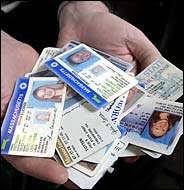 Educational technology trends
Educational technology trends
 virtual identification
virtual identification
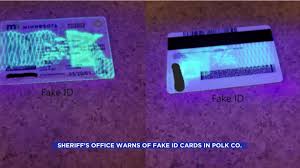 Fake ID online
Fake ID online
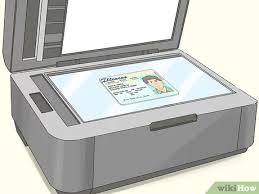 Fake identification cards
Fake identification cards
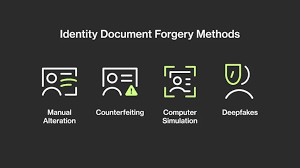 Campus identification systems
Campus identification systems
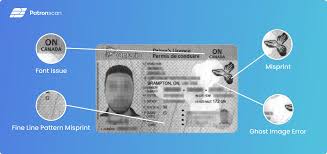 High-quality identification ca
High-quality identification ca

